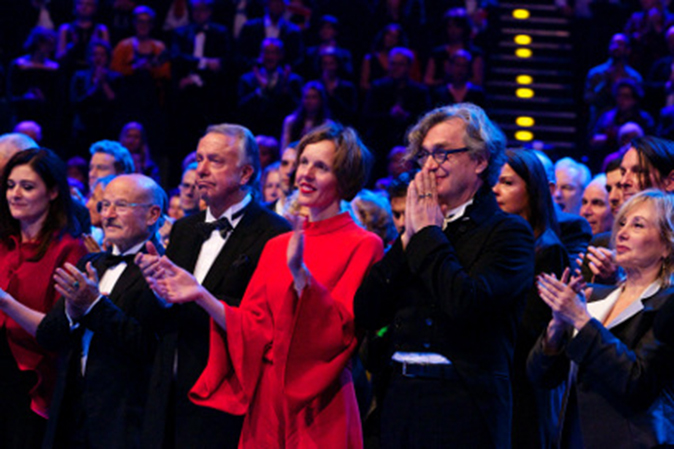
Since its inception in November 1988, the European Film Academy has worked to represent the interests of its members and promote Europe’s film culture. A range of public and private events is designed to build a bridge between creativity and the film industry and also boost the film culture financially“, to quote the committee when it was established. Every year the EFA hands out the European Film Award, with the ceremony being held every second year in Berlin and then moving to a different European country the following year. This year’s 27th Film Awards will feature prizes in a total of 21 categories. These will see all categories represented including best European film, best director/best female director, best actor/best actress and the best screenplay and best movie soundtrack.
”The European Film Academy is a Europe-wide institution that brings film-makers from nearly all European countries under one roof. It has become the face of film culture in Europe and has contributed greatly to the reputation and acceptance of European film productions improving over the last few years – in particular compared to American productions -“, said Michael Kayser, Chairman of the ”Médaille Charlemagne“ association, on the announcement of the current prize winner today in Aachen.
Aachen’s Mayor Marcel Philipp stressed “that by networking filmmakers, the European Film Academy has in exemplary fashion, made an important contribution to a common culture as the basis of European integration. With its work, it is pooling the creative and artistic potential of European film and enhancing its economic strength. At the same time, it fosters the diversity, without which Europe, with all its linguistic and cultural differences, could not have been built ”
Bernd Vincken, representing Dr. Jürgen Linden as spokesman of the Executive Board of the Gesellschaft für die Verleihung des Internationalen Karlspreises zu Aachen e.V., said that here film is used as a trans-national common language to bring today’s Europe closer to the people. Film, whether drama or comedy, serves as a carrier of information and emotions. Countries and people are depicted and presented and alongside stories, history is often told.
Since the year 2000, a European personality or institution has been honoured with the Charlemagne medal in the run-up to the Charlemagne Prize celebrations. This has been a person or institution that has made a contribution in the field of media to the process of European unification and to the emergence of a European identity.
Previous recipients were the publisher Lord George Weidenfeld (GB), the author Cees Nooteboom (NL), the producer Jan Mojto (D), the Director Jean-Jacques Annaud (F), the former Director of the West German Broadcaster Cologne Fritz Pleitgen (D), the Polish actress Krystyna Janda (PL), the Stiftung Berliner Philharmoniker, the joint directors Fatih Akin (D) and Abdellatif Kechiche (F), the Organisation “Reporters without borders”, the musician André Rieu (NL), the publisher Inge Schönthal Feltrinelli, the Russian newspaper Novaya Gazeta and the British historian and writer Timothy Garton Ash.
The prize is awarded by the association “Médaille Charlemagne pour les médias Européens”, which includes the following institutions: City of Aachen, City of Maastricht, the German-speaking community of Belgium, Landesanstalt für NRW (LfM), Film – und Medienstiftung NRW GmbH, Arte – the European Cultural Channel, BBC World News, Deutsche Welle, EOS Entertainment GmbH, Euronews, Eurosport S.A, the Newspaper Association of North Rhine-Westphalia, and the Gesellschaft für die Verleihung des Internationalen Karlspreises zu Aachen e. V. The association was founded in 2006 on the initiative of the LfM, and the city of Aachen.
The medal is designed by the Cologne-based artist Angela Katzy. It has a diameter of about 10 cm and is worked in Sterling silver. The lapis lazuli is mounted in 750 yellow gold and the inner strut is designed in yellow gold. It stands for the stroke, similar to a signature that Charlemagne himself added to his seal, because he could not write.